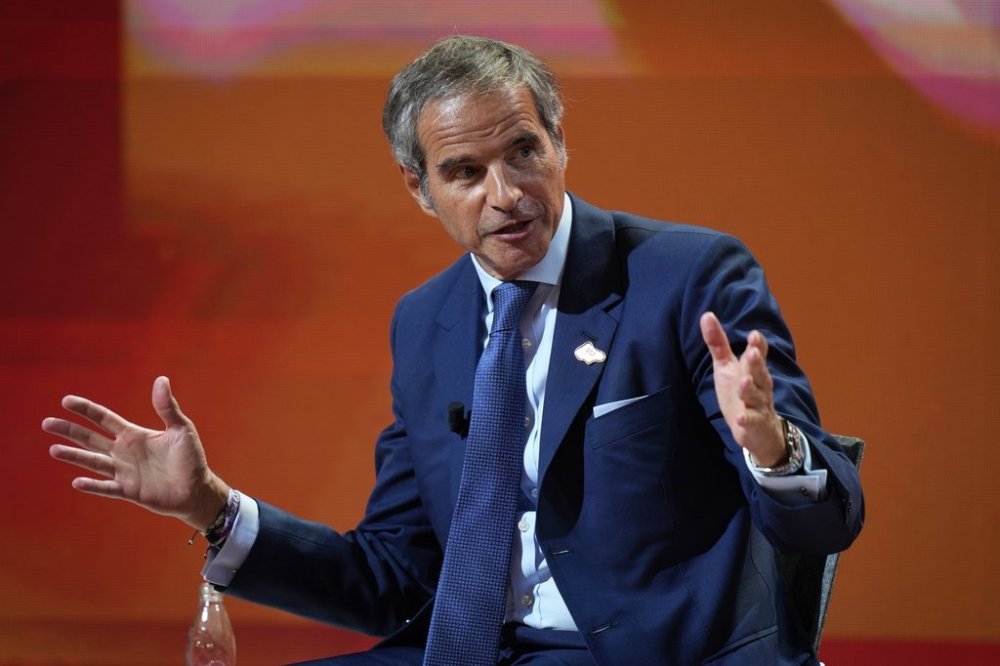UN watchdog finds uranium traces at suspected Syrian former nuclear site
Advertisement
Read this article for free:
or
Already have an account? Log in here »
To continue reading, please subscribe:
Monthly Digital Subscription
$0 for the first 4 weeks*
- Enjoy unlimited reading on winnipegfreepress.com
- Read the E-Edition, our digital replica newspaper
- Access News Break, our award-winning app
- Play interactive puzzles
*No charge for 4 weeks then price increases to the regular rate of $19.00 plus GST every four weeks. Offer available to new and qualified returning subscribers only. Cancel any time.
Monthly Digital Subscription
$4.75/week*
- Enjoy unlimited reading on winnipegfreepress.com
- Read the E-Edition, our digital replica newspaper
- Access News Break, our award-winning app
- Play interactive puzzles
*Billed as $19 plus GST every four weeks. Cancel any time.
To continue reading, please subscribe:
Add Free Press access to your Brandon Sun subscription for only an additional
$1 for the first 4 weeks*
*Your next subscription payment will increase by $1.00 and you will be charged $16.99 plus GST for four weeks. After four weeks, your payment will increase to $23.99 plus GST every four weeks.
Read unlimited articles for free today:
or
Already have an account? Log in here »
VIENNA (AP) — The United Nations’ nuclear watchdog said Tuesday that its inspectors found traces of uranium at a site in Syria believed to be part of a clandestine nuclear program by the former government.
Syria under former President Bashar Assad was believed to have operated an extensive undeclared nuclear program, which included an undeclared nuclear reactor built by North Korea in eastern Deir el-Zour province.
The International Atomic Energy Agency’s director-general, Rafael Mariano Grossi, previously told The Associated Press that some of Syria’s activities “were, in the judgment of the agency, probably related to nuclear weapons.”

Last year, IAEA inspectors visited and took environmental samples at “three locations that were allegedly functionally related” to the Deir el-Zour site, and “analysis revealed a significant number of anthropogenic natural uranium particles in samples taken at one of the three locations,” IAEA spokesman Fredrik Dahl said in a statement.
“Some of these uranium particles are consistent with the conversion of uranium ore concentrate to uranium oxide,” he said. This would be typical of a nuclear power reactor.
Grossi reported these findings to the agency’s board of directors Monday in a report on developments in Syria.
The Deir el-Zour site only became public knowledge after Israel — which is believed to be the Middle East’s only state with nuclear weapons, although it has not declared its own program — launched airstrikes in 2007 destroying the facility. Syria later leveled the site and never responded fully to the IAEA’s questions.
An IAEA team in visited some sites of interest last year while Assad was still in power. After Assad’s fall, the new government led by interim President Ahmad al-Sharaa agreed to cooperate with the agency and again provided inspectors access to the site where the uranium particles had been found.
They took more samples there and “will evaluate the results of all of the environmental samples taken at this location and the information acquired from the planned visit to the (Deir el-Zour) site, and may conduct follow-up activities, as necessary,” Dahl said.
In an interview with the AP in June during a visit to Damascus, Grossi said al-Sharaa had expressed an interest in pursuing nuclear energy for Syria in the future.
A number of other countries in the region are pursuing nuclear energy in some form. Grossi said Syria would most likely be looking into small modular reactors, which are cheaper and easier to deploy than traditional large ones.
He also said that IAEA is prepared to help Syria rebuild the radiotherapy, nuclear medicine and oncology infrastructure in a health system severely weakened by nearly 14 years of civil war.
___
Sewell reported from Beirut.
___
The Associated Press receives support for nuclear security coverage from the Carnegie Corporation of New York and Outrider Foundation. The AP is solely responsible for all content.

